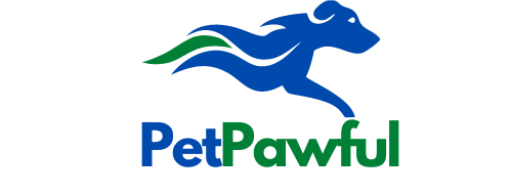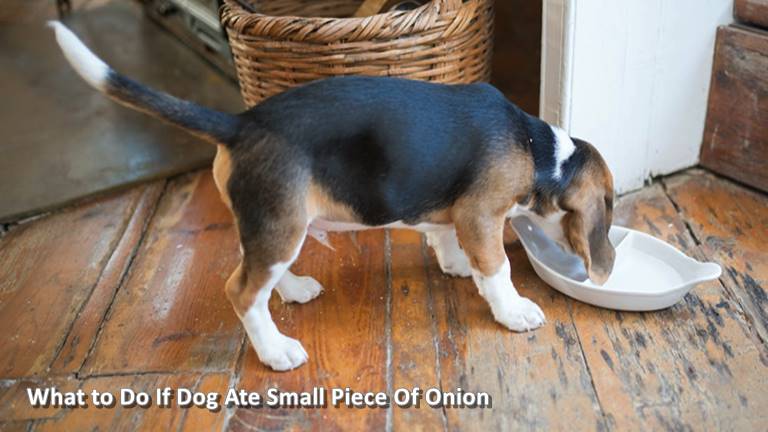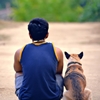We always work to maintain the safety and well-being of our four-legged friends. But mistakes can happen, and occasionally our dogs ingest things they shouldn’t. It’s imperative to respond right away if you discover that your dog has consumed a small piece of onion. This article will walk you through the necessary actions to guarantee your dog’s safety and reduce any possible problems brought on by onion consumption.
Understanding the Dangers of Onion Consumption
Onions contain compounds that are toxic to dogs, specifically thiosulphates and organosulphoxides. These substances can lead to oxidative damage to red blood cells, resulting in a condition called hemolytic anemia. Even small amounts of onion can have cumulative effects, making it crucial to address the situation promptly.
Symptoms of Onion Toxicity in Dogs
It’s important to be vigilant and watch for any signs of onion toxicity in your dog. Common symptoms may include gastrointestinal distress such as vomiting, diarrhea, and loss of appetite. Other indications include weakness, lethargy, pale gums, and discolored urine. If you notice any of these symptoms or suspect that your dog has ingested onion, it’s vital to take immediate action.
What to Do If Dog Ate Small Piece Of Onion
Step 1: Contact Your Veterinarian
The first and most crucial step is to contact your veterinarian or a pet poison hotline immediately. They will provide professional advice tailored to your dog’s specific situation. Describe the amount of onion consumed, your dog’s size and breed, and any symptoms you’ve observed. Based on this information, they will guide you on the next course of action.
Step 2: Do Not Induce Vomiting Without Professional Guidance
While inducing vomiting may be appropriate in some cases, it should only be done under the guidance of a veterinarian. Do not attempt to induce vomiting at home without professional advice, as it can potentially worsen the situation.
Step 3: Follow Veterinary Instructions
Your veterinarian may provide specific instructions depending on the severity of the situation. They may recommend bringing your dog in for an examination or advise you to monitor their condition closely at home. Follow their guidance diligently to ensure the best outcome for your furry companion.
Step 4: Support Your Dog’s Recovery
During the recovery period, it’s crucial to provide support for your dog’s well-being. Follow any dietary recommendations given by your veterinarian, which may include a bland diet or specific dietary restrictions. Monitor your dog’s appetite, hydration, and overall behavior closely. Ensure that fresh water is readily available to keep your dog hydrated throughout the recovery process.
How To Prevent Dog From Eating Onions?
Preventing your dog from eating onions is crucial to ensure their health and well-being. Onions contain compounds that are toxic to dogs and can lead to serious health complications. To help you keep your furry friend safe, here are some effective strategies and tips to prevent your dog from eating onions:
Maintain a Safe and Onion-Free Environment
- Store onions securely: Keep onions in a tightly sealed container or a high cabinet that is inaccessible to your dog. Make sure they are out of your dog’s reach.
- Dispose of onion scraps properly: Ensure that any leftover onion scraps or peels are disposed of in a secure trash can with a tight-fitting lid.
- Be cautious in the kitchen: When preparing meals that include onions, be mindful of your dog’s presence and prevent them from accessing any onion-related food items.
Educate Family Members and Visitors
- Inform everyone in your household about the dangers of onions for dogs. Stress the importance of not sharing any food containing onions with your dog.
- Educate visitors, especially children, about the potential risks and the importance of not feeding your dog any human food without your permission.
Be Mindful of Hidden Onion Ingredients
- Read ingredient labels: Check ingredient labels of packaged or processed foods, such as sauces, soups, and dressings, to ensure they do not contain any onion derivatives.
- Be cautious with seasoning mixes: Some seasoning mixes may contain onion powder or other onion-based ingredients. Avoid using such mixes when preparing meals for your dog.
Train and Reinforce Boundaries
- Teach the “Leave it” command: Train your dog to understand and respond to the “Leave it” command. This command will help redirect their attention away from any potential onion exposure.
- Set boundaries in the kitchen: Establish clear boundaries in the kitchen area and teach your dog to stay away while you’re cooking or handling food.
Offer Healthy Alternatives
- Provide safe and nutritious treats: Keep a supply of dog-friendly treats readily available. Offer these treats as a distraction or reward to discourage your dog from seeking out onions.
- Serve dog-appropriate meals: Ensure that your dog’s meals are well-balanced and meet their nutritional needs. Consult with your veterinarian to determine the best diet for your dog.
Supervise Your Dog
- Keep an eye on your dog: Supervise your dog, especially when they are in areas where onions may be accessible, such as during outdoor activities or visits to friends or family members’ homes.
- Monitor scavenging behavior: Dogs may be tempted to scavenge for food, including onions, while outdoors. Be vigilant and prevent them from accessing potentially harmful substances.
Seek Professional Advice
- Consult with your veterinarian: If you have any concerns or questions regarding your dog’s diet or potential onion exposure, consult with your veterinarian. They can provide tailored guidance and recommendations based on your dog’s specific needs.
Remember, prevention is key when it comes to keeping your dog safe from onion ingestion. By implementing these preventive measures and being proactive, you can minimize the risk of your dog consuming onions and ensure their long-term health and well-being.
The Bottom Line
If your dog has ingested a small piece of onion, it’s crucial to act swiftly and seek professional advice. Remember to contact your veterinarian immediately and follow their guidance. Onion ingestion can pose risks to your dog’s health, but with prompt action and proper care, you can help ensure their safety and well-being. Stay informed, take preventive measures, and prioritize your dog’s health at all times. Your furry friend depends on you for their safety and happiness.


